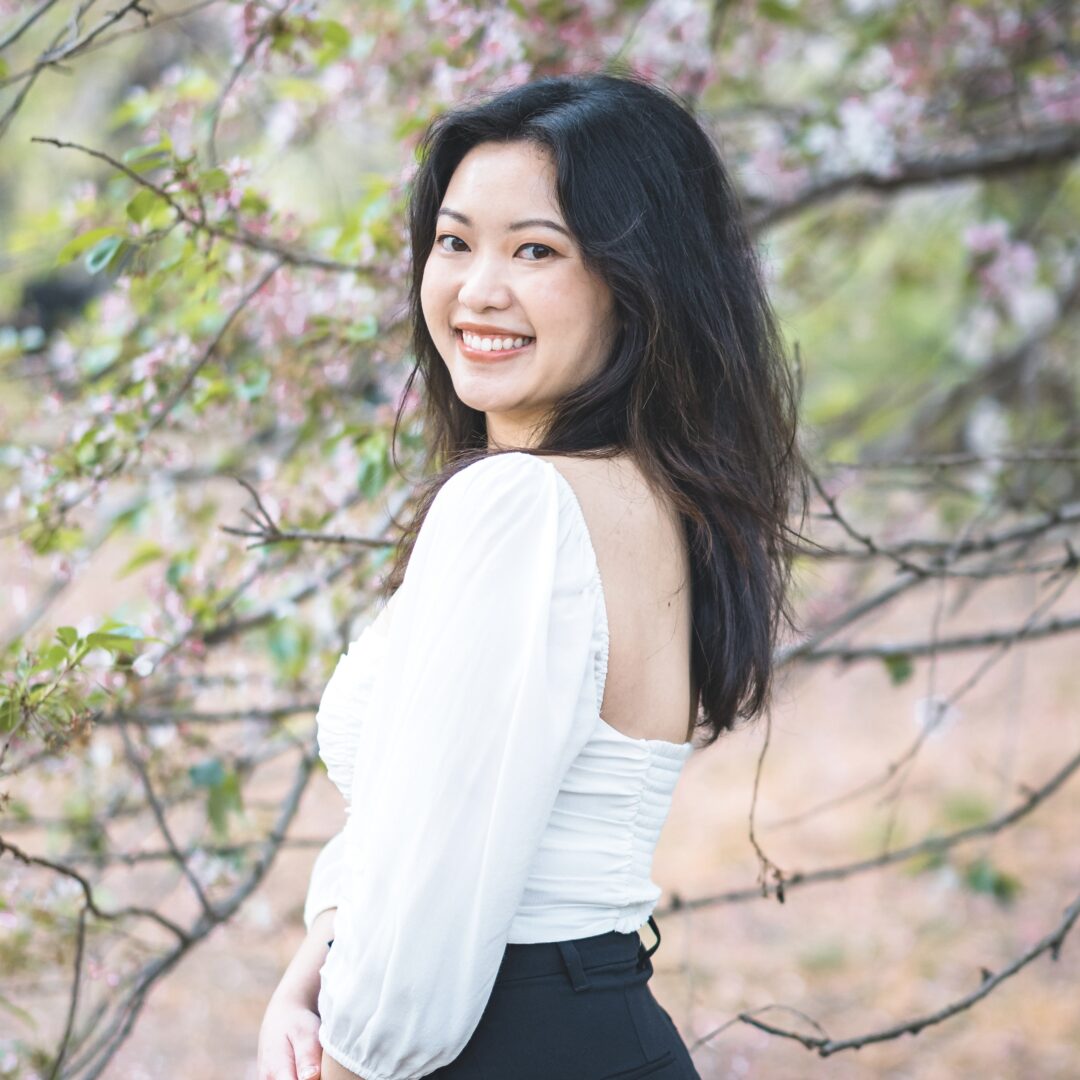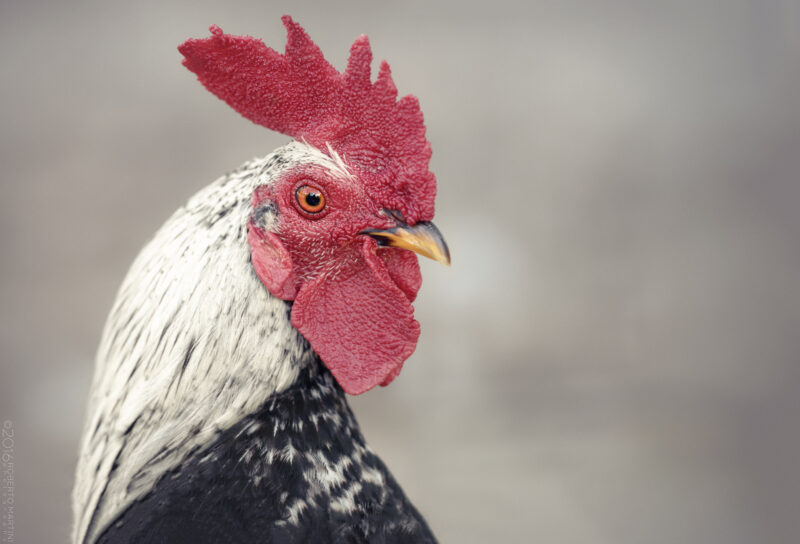Every time I visit home, my mother cooks a steaming vat of bún thang, the Vietnamese chicken noodle soup originating from Hanoi. It’s a two-day marathon of simmering the broth to the right ratio of savory and sweet. Meanwhile, she prepares the toppings: shredded chicken, thin strips of chả lụa, and meticulously diced egg crepes. Bún thang has a reputation for being simple in its ingredients and preparation, but it’s fussy in a subdued way. The precision of the knife, knowing just when to flip the egg, the rhythm of hand-tearing meat from bone.
When my mom makes phở, our house smells rich and earthy, with cinnamon, coriander, and star anise lingering like the afterthoughts of my childhood. Instead, bún thang is light in its heartiness. Its staying power arises from memories of being feverish, refusing solid food, sipping the broth while propped up in bed. It reminds me of my dad, of the ice packs he’d place on my cheeks, of his hometown that I’d only seen in stories.
My father was an infamous troublemaker in Hanoi’s countryside, scaling his neighbor’s mango trees to steal fruit for himself and his younger brother. Together, they’d skip class to ride their bicycles to nearby villages, to the apathy of my grandfather, a cop who cared only for drinking and gambling. Their lives were quiet enough, certainly not to the point of idyllic, but there was enough food—and more than enough drink—on the table. The family later relocated to the south of the country, but the fall of Saigon was their final confirmation to flee.
I don’t know much about my father’s immigration to the United States, except that when it came time to pack his belongings, he only brought his beloved pet rooster and a bag of rice. Obviously, his parents forced him to leave both behind. Ten days later, in Guam, he descended the wooden gangplanks of his ship as the lone surviving son of the family.
Decades later, as the firstborn son to the eldest son, my birth marked the beginning of the next generation. My father insisted to name me in honor of his brother. But he carried with him the deep superstitions of the old country, the belief that devils would covet children with beautiful names and take them during the night. He counteracted this by giving me a nickname for protection. He called me his rooster.
My father and I have been estranged since he overheard me on the phone with my boyfriend two Christmases ago. First, there was disbelief, then rage, then humiliation. As he bellowed at me, I felt that childhood idolization fracture, an intact branch falling from a now-decaying tree. I wanted to reassure him that I was the same son who cleaned tables with him after closing, who played cards with him and his friends every Sunday after church. I wanted to beg him to love me. To see me. Instead, I stood there staring blankly. When he reached for his leather belt, my mother finally intervened, shielding me with her body. He took this as her admission of being an accomplice to my crime and stayed at a Motel 6 for the remainder of my winter break.
It’s true. I’d come out to her before leaving for college.
My mother taught us to be wary of Vietnamese men, their hyper-fixation on swagger and bravado. I don’t think it was ever about being manly, more about never being in the vicinity of weakness or fragility, which, of course, was relegated to the realm of women. Like the devils in our folklore, my father coveted her, a former pageant queen from an affluent family in Saigon. He stifled her like pinning a rare butterfly to a corkboard, even more so because she fulfilled the expectation for a doting wife who looked the other way. The magnifying glass he held to her likeness gave no margin for error, and, in turn, no leniency for his children. Despite that, my mother was calculated, planting seeds and waiting for them to germinate seasons later.
You will need a man to survive, my grandmother instructed her. Then, when you have children of your own, you must teach them how to survive him.
With the slam of the front door and the sputtering engine of his beat-up Toyota Corolla, my mother saw the fruit of decades’ worth of repressed rage. When my father returned, the house was vacant.
Now, as my mother and I pull into my grandmother’s driveway, I know there is an overflowing pot of bún thang waiting for me inside, and it is a true labor of love. I can imagine their figures huddled over the stove, bickering if the broth is to their standards. Bà Ngoại waits at her front door in a faded Hawaiian shirt, and an old “Paris by Night” special booms on the 360-surround system an uncle bought her at Costco. She thwacks my back as she embraces me and deeply inhales my scent, tears in her eyes. Con ơi! Boston is too far, she bemoans, and my mom rolls her eyes at the theatrics and responds, Tell me about it, má.
I shared my first cigarette with my father when I was 12. I hated it. When I turned 16—of age to be a man, by his standards—he taught me how to drink cognac with his special occasion Hennessy. But it is here in my grandmother’s kitchen, in the face of unconditional love, that I have never felt stronger or more like a man. As I help set the table, my gaze falls on the picture of me and Phước held up on the refrigerator by a magnet of the Virgin Mary. Jesus keeps my sister’s engagement portraits in place on the opposing door.
Phước, with his sketchbooks and charcoal pencils, is bold lines with rounded edges. Meeting him as a freshman freed me from the marble I was encased in, and he waited, patient and steadfast, as I excavated myself to meet him in the light. It was only then that these three remained: faith, hope, and love. Now, when I wake in our apartment and find him hunched over his thesis portfolio, his glasses threatening to slip off his nose bridge, I know for myself that the greatest of these is love.
Here, at Bà Ngoại’s worn oak table in California, I slurp the last drops of soup. My mother exchanges my now-empty bowl for a plate of cut mangoes. My phone lights with a new notification from Phước. She smiles to herself and says that she loves me, her rooster.

Brittany Pham is a Vietnamese American writer and California native in New York. She hosts the monthly book club at Yu & Me Books, New York City’s first Asian American female-owned bookstore, and reviews books on her Instagram @scienceowlreads. She is working toward a PhD in pharmacology.




Such a beautifully told story!